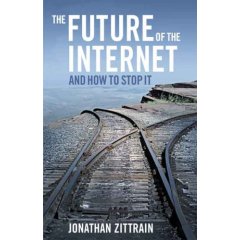
Just spotted that my review of Jonathan Zittrain’s book is out. Find it in Management Today.


Just spotted that my review of Jonathan Zittrain’s book is out. Find it in Management Today.
The Naughton household is deep into a discussion about the positive side of certain words. For example, one often comes across the word ‘disgruntled’; but where — outside of PG Wodehouse — will you find ‘gruntled’? (It’s the kind of thing Bertie Wooster might say, I suppose.) And what about ‘consolate’? And when was the last time you saw anyone nicely ‘shevelled’? Eh?
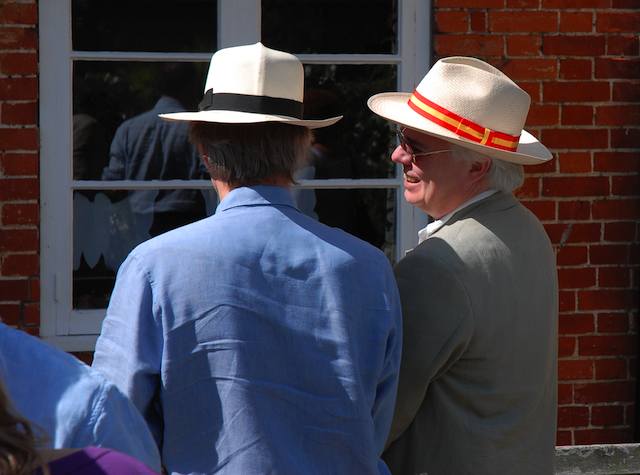
Spotted at Nicci’s birthday party — Julian Barnes on the left, deep in conversation with Francis Wheen (who is wearing his MCC hat). I’d forgotten to bring headgear (bad news for a guy who’s lost most of his hair) and so was reduced to wearing one of Sean’s gardening hats, which made me indistinguishable from a tramp. Sigh.
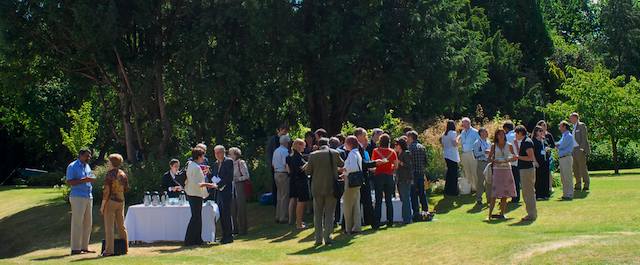
If you’d dropped a bomb on the Cavonius Centre at Gonville & Caius College in Cambridge any time in the last two days then you’d have wiped out most of the senior creative people in the BBC (plus a few academics). They were gathered for the annual media seminar organised by my colleague Joe Smith in collaboration with Roger Harrabin and others from the BBC and IBT, who now has the grand title of BBC Environmental Analyst. The purpose of the event is to get the BBC folks away from their highly-pressured environment and expose them to a spectrum of thinkers from academia and the arts world. I chaired one of the ongoing panels (with the magnificently opaque theme of ‘Things’). My fellow-panellists were a fascinating mix: Edmund de Waal, who is a distinguished potter and Professor of Ceramics at Westminster University; Dilys Williams, the Director of the Centre for Sustainable Fashion, at the London College of Fashion (both shown below); Heather Ackroyd, an amazingly inventive artist; and Tony Lake, who until a few weeks ago was Chief Constable of Lincolnshire.
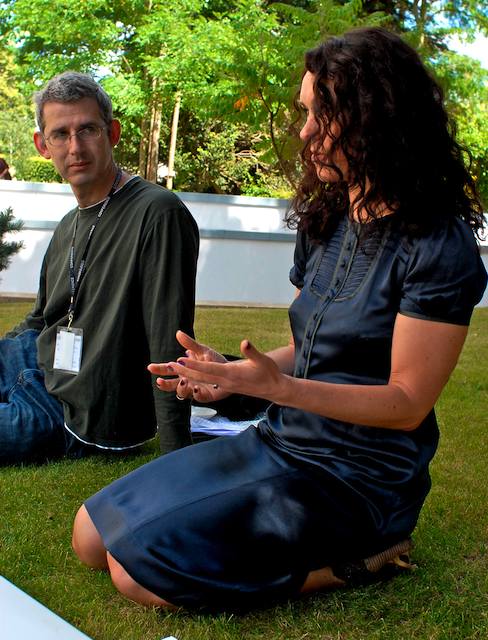
The overall idea of these gatherings is to reflect on interdependence. The theme this year was “Real World: storytelling in an interconnected world”. Not surprisingly, there was a lot of collective agonising about the state of the public debate about subjects like climate change and DNA testing — and on the role of the mainstream media in fostering (or hampering) those debates. The openness and vigour of the debate between the editors and programme-makers and their bosses was impressive. The BBC continues to employ a lot of intelligent and perceptive people.
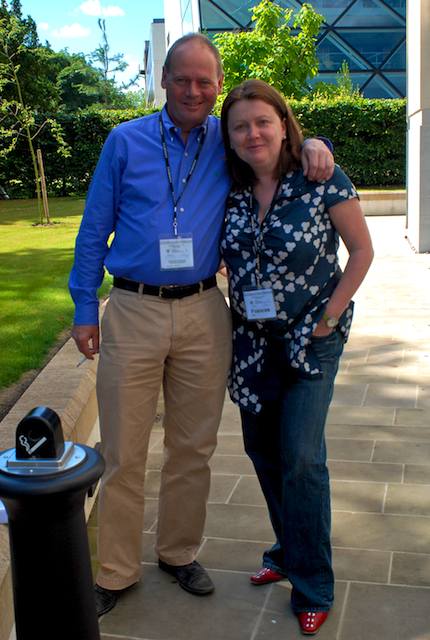
For me, one of the high points of the seminar was meeting John Lloyd, the producer/writer behind a staggering list of comedy shows. (The photograph shows him with Frances Weil of BBC Vision, one of the organising team.) He was co-chair of the event, and did it with grace, perceptiveness and wit. It’s not often that someone whom one knows only by reputation comes up to scratch. And wonderful when they surpass one’s wildest expectations.

Seen in a lift in Cambridge. I know it’s a corny headline, but I couldn’t resist it.
This is truly — as Marc Rotenberg, executive director of the Electronic Privacy Information Center put it — one of those “I told you so” moments.
For every video on YouTube, the judge required Google to turn over to Viacom the login name of every user who had watched it, and the address of their computer, known as an I.P. or Internet protocol address.
Both companies have argued that I.P. addresses alone cannot be used to unmask the identities of individuals with certainty. But in many cases, technology experts and others have been able to link I.P. addresses to individuals using other records of their online activities.
The amount of data covered by the order is staggering, as it includes every video watched on YouTube since its founding in 2005. In April alone, 82 million people in the United States watched 4.1 billion clips there, according to comScore. Some experts say virtually every Internet user has visited YouTube.
Of course Viacom swears blind that the only people who will have access to this information are its lawyers (who are working on its $1 billion copyright infringement suit against Google). But it brings one up sharply against the implications of cloud computing.